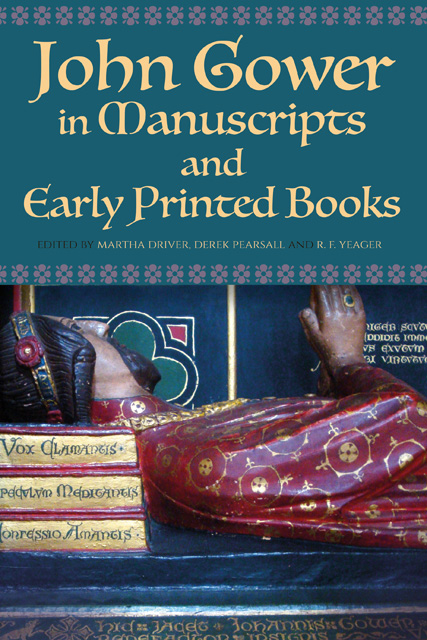3 - A State above All Other: The Recensions of Confessio Amantis and the Anthropology of Sovereignty
Published online by Cambridge University Press: 18 January 2023
Summary
As Siân Echard makes clear in her essay in this volume, editors of Confessio Amantis have always given what is now commonly known as the “third recension” pride of place. William Caxton seems to have known only this version. Thomas Berthelette noted the textual variants, and sought to justify his following of Caxton’s edition. G. C. Macaulay printed the earlier recension beneath the later, with asterisks before the line numbers to indicate their variance; Russell Peck maintained these conventions.
Echard further notes that editors have had many reasons for these choices. Chief among these would seem to be the assumption that the latest version must represent Gower’s final choices and therefore have greater authority. Recent scholarship, however, has called into question the hierarchy of recensions, both in terms of their number and their chronology. There seems to be nearly as much textual variation within each of the three groupings that Macaulay identified as recensions as there are among them. And scholars have shown that there is little manuscript evidence to support the editorial model of Macaulay and Fisher, in which a version of the poem from the late 1380s was revised twice by Gower, the second and more substantial revision in about 1392. Peter Nicholson and Joel Fredell have made strong cases that all manuscripts of the Confessio and their textual variations are products of the early Lancastrian period.
The issue is by no means resolved, however, and Macaulay’s classifications and editorial choices still predominate in the Gowerian critical discourse. It is all the more important, therefore, to ask why the conventional representation of the Confessio text persists. Macaulay’s innovation of printing, at the start of the Prologue and at the conclusion of Book VIII, the so-called third recension above and the first recension beneath it, constructs the text as a dyad. One version preserves the dedications to Richard II in the Prologue and the conclusion, and the narrative of the meeting on the Thames at which Richard requests the composition of the poem. This is superseded by a recension that removes these passages, dedicates the poem to “Engelond,” and includes praise of Henry of Lancaster. The most popular explanation for this radical political revision has been that it represents Gower’s reaction to Richard’s budding absolutism.
- Type
- Chapter
- Information
- John Gower in Manuscripts and Early Printed Books , pp. 55 - 70Publisher: Boydell & BrewerPrint publication year: 2020



